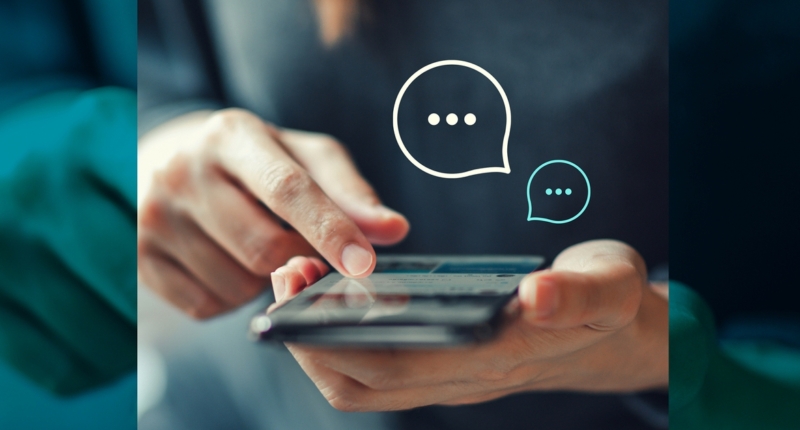Artificial intelligence (AI) is transforming the legal industry, and recent developments show that the technology could soon replace the work of junior lawyers. However, some experts believe that the tool still lacks the nuanced communication and negotiation skills that make humans valuable to the industry. Therefore, young lawyers must develop wisdom instead of knowledge when looking forward to an increasingly AI-tech-heavy legal profession. Law schools also face challenges stemming from AI tools like ChatGPT, including how to accurately assess students now they have easy access to AI help, as well as how to embed the tools into department curricula. Despite concerns, McKinsey notes that AI may fundamentally alter business, not just in the legal profession, but also in areas like marketing, sales, IT, HR, and customer service. Experts predict that there will be a whole slew of law graduates that will invent this new space.
Chat GPT: The Future of Grad Lawyers under the Microscope
The legal profession is undergoing rapid change as technological advancements are fundamentally reshaping the industry. ChatGPT, a chatbot developed by OpenAI, is a prime example of the role technology is playing in the legal sector. This tool, which can perform a range of tasks, including writing essays, generating jokes, and producing music, has been touted as a potential threat to white-collar jobs, particularly for young lawyers.
The latest iteration of the chatbot, GPT-4, which was developed in collaboration with Microsoft, is the most sophisticated version yet. It has generated significant discussion, with some experts suggesting that it could signal the ascendency of AI over all human content producers.
For young lawyers, the immediate threat posed by ChatGPT appears to be most pronounced at the junior end of the industry, as the tool has the ability to process vast amounts of legal data. GPT-4 builds its text-generating models using machine-learning algorithms that process information from various sources, including specialist legal sources, books, news articles, Wikipedia pages, and websites. The University of Sydney has described the output as “in general, genuinely informative and helpful explanations on a broad range of topics.”
According to business futurist and strategist Morris Misel, legal graduates, paralegals, and legal researchers are some of the profession’s workers most likely to be impacted by ChatGPT. Misel explains that “law graduates have traditionally been brought in at the lower end to do the grunt work, the exploratory work, read through contracts and find errors and (do) legal research. But that to some degree will be done by this type of technology.”
However, Misel argues that technology replacing humans in the legal profession is not a new phenomenon. He points to the loss of stenographers and receptionists over the last 25 years as evidence of this trend.
Despite the potential of ChatGPT to revolutionize the legal industry, it is unlikely that the technology will replace human lawyers entirely. The Law Society of New South Wales has suggested that while the chatbot may prove useful in some contexts, it will support rather than replace human lawyers. The society argues that it is difficult to imagine that the technology could match the reliability of graduate lawyers.
In conclusion, ChatGPT represents a significant development in the legal profession, with the potential to radically reshape the industry. However, it is unlikely to replace human lawyers entirely and may instead serve as a useful aid in legal research. As the industry continues to evolve, young lawyers must remain adaptable and embrace new technologies to remain competitive.
ChatGPT: The Digital Tool That Can Pass Law Exams
Since its release in November 2022, ChatGPT has demonstrated its ability to pass law school exams. Researchers at the University of Minnesota used the digital tool to sit law exams, grading it alongside actual students’ tests. The software “consistently achieved low but passing grades” across 95 multiple choice questions and 12 essay questions, which, if replicated across an entire degree, would be enough to graduate.
In another experiment, two law professors and two staff members of legal tech company Casetext deployed GPT-4 to take the US bar exam, a tough two-day test that aspiring lawyers must pass to practice law in the country. The chatbot scored 297, which, according to the researchers, places it in the 90th percentile of human test-takers, a good enough result to be admitted to practice law in most US states.
“These findings document not just the rapid and remarkable advance of large language model performance generally, but also the potential for such models to support the delivery of legal services in society,” the researchers wrote in a paper published in March in the electronic journal Social Science Research Network.
While the results are impressive, Lyria Bennett Moses, director of UNSW’s Allens Hub for Technology, Law, and Innovation, says that Chat GPT is unlikely to replace grad lawyers in the short term. She notes that, right now, its responses are “too ridden with errors, including fake case references, to be used directly in legal advice.”
Bennett Moses adds that “while it might prove to be a useful aid in legal research in some contexts, this supports humans in doing their work rather than replacing them.” She argues that “it is hard to conceive of this technology having similar reliability to graduate lawyers.”
Law firm Allens suggests that ChatGPT could provide benefits for legal practitioners. The tool could lower costs by automating and reducing the need for human input, especially for initial tasks on matters. The firm also suggests that the chatbot could boost productivity and efficiency by rapidly generating responses to simple legal queries and quickly preparing preliminary drafts of contracts and briefs. It can also quickly locate relevant information in voluminous sources like case law and statutes, speeding up the resolution of simple legal queries.
In conclusion, while ChatGPT’s ability to pass law exams is impressive, it is unlikely to replace human lawyers in the short term. Instead, it may serve as a useful tool for legal practitioners, lowering costs and improving efficiency. As the legal profession continues to evolve, lawyers must remain adaptable and embrace new technologies to remain competitive.
Wisdom Over Knowledge: The Future of Law and ChatGPT
While ChatGPT has shown impressive results on law exams and can automate many tasks, experts agree that it cannot replace human lawyers in terms of soft skills like nuanced communications and negotiation between competing parties. Lyria Bennett Moses, director of UNSW’s Allens Hub for Technology, Law, and Innovation, notes that the chatbot’s responses are “too ridden with errors, including fake case references, to be used directly in legal advice.”
Morris Misel, a business futurist and strategist, predicts that law graduates will shift their roles from doing legal research to overseeing the work carried out by a future version of ChatGPT. He urges law students to develop “wisdom” instead of “knowledge,” as technology like ChatGPT is fast mastering mass information gathering and turning it into knowledge. Where it cannot beat actual lawyers is in softer skills like communication and negotiation.
Despite this, Harvard Law School predicts that AI may not eliminate the need for lawyers, but it does “portend the end of lawyering as we know it.” Law schools must adapt to this new reality by assessing students accurately and embedding AI tools like Chat GPT into department curricula.
As the legal profession continues to evolve, young lawyers entering the workforce must remain adaptable and embrace new technologies to remain competitive. While AI tools like Chat GPT can automate many tasks, they cannot replace the human touch of a lawyer’s soft skills. The key to success in an increasingly AI-tech heavy legal profession is to develop wisdom and think creatively about a client’s problem, communicate advice clearly and empathetically, and think strategically through options in litigation or in a transaction.
As the use of AI technology becomes more prevalent in the legal industry, young lawyers need to keep up with the latest AI tools and be able to integrate them into their work in order to remain competitive. According to a legal center at Harvard, future lawyers need to understand how to use AI document drafting in order to succeed, as clients will not want to work with lawyers who eschew AI. However, despite the advances in AI technology, there will always be a role for human judgment and reasoning in complex legal issues, such as nuanced communication and negotiation between competing parties.
AI-enhanced lawyers will likely become the norm in the industry, and the implementation of AI will reshape the structure of law firms. Young lawyers may find opportunities in overseeing the work carried out by AI programs like ChatGPT, which can replace a lot of standard and routine work done by grads. Flood, Professor of Law and Society at Griffith University, suggests that a “tech division” will be a key part of legal companies in the years ahead.
Despite the potential of AI to automate certain legal tasks, Flood points out that AI-backed legal software can also speed up some processes and make them more efficient, as is the case with AI-backed software for couples going through divorces. The software can ask couples questions about their assets and children and work out a division based on what they might want and what the court may accept or not accept, reducing a process that used to take several weeks down to just ten minutes.
While some have expressed concern that AI may replace lawyers, others point out that this is not necessarily the case. Bennett Moses, director of UNSW’s Allens Hub for Technology, Law and Innovation, notes that the same thing was said about earlier technology like computer systems in document review. Misel urges legal grads to remain upbeat, noting that they are not the only ones who will be affected by generative AI systems like ChatGPT.
Law schools also face challenges when it comes to AI tools like ChatGPT, such as how to accurately assess students now that they have easy access to AI help, as well as how to embed the tools into department curricula. However, with the right training, young lawyers will be able to integrate AI technology into their work and remain competitive in the legal industry.
According to global consulting firm McKinsey, the impact of AI may not be limited to the legal sector but may also extend to marketing, sales, IT, HR, and customer service. Futurist Misel believes that law graduates have an opportunity to create a new space in the industry, where they are not bound by a predetermined landscape and long hours before getting to the next level.
Don’t miss interesting posts on Famousbio










